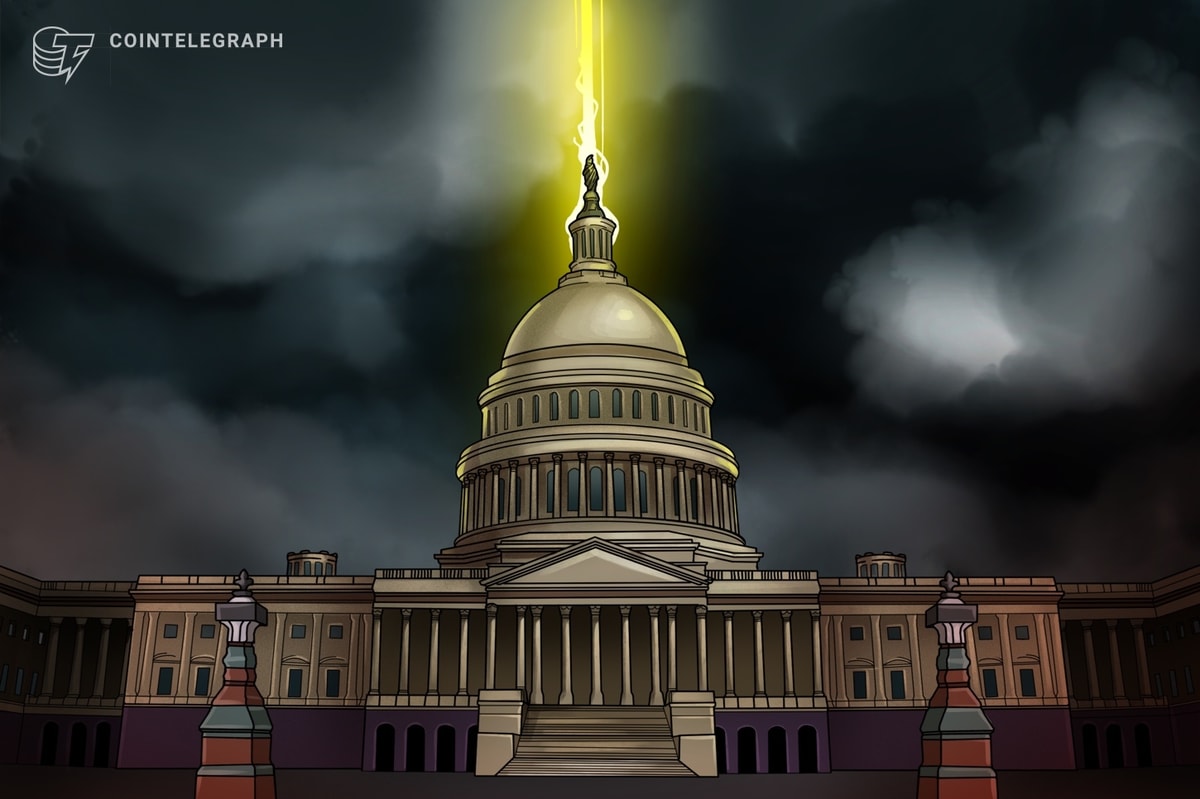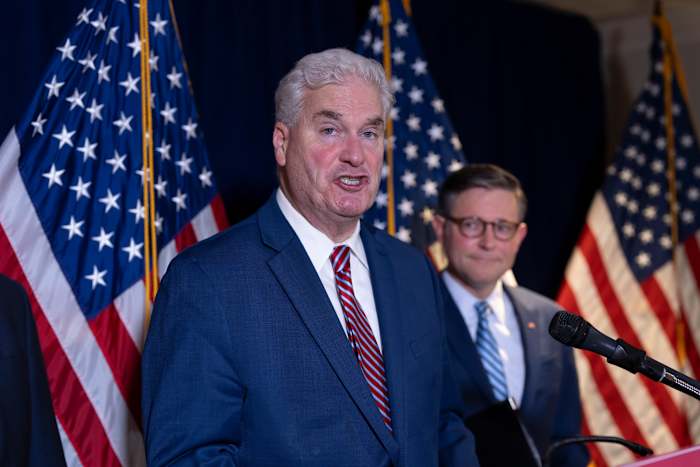T4K3.news
House GOP votes down key crypto legislation
Thirteen Republicans opposed a measure to advance crypto and defense funding bills.

Thirteen House Republicans opposed a procedural vote affecting key crypto bills and defense funding.
House GOP faces dissent over crypto legislation
In a surprising move, 13 House Republicans disregarded party lines and voted against a procedural measure aimed at advancing three cryptocurrency bills and an appropriations bill for the Defense Department. The vote, with a result of 223-196, has thrown a wrench into the leadership's plans to promote President Donald Trump's "crypto week" agenda. These bills include the CLARITY Act, the Anti-Central Bank Digital Currency Surveillance State Act, and the Guiding and Establishing National Innovation for U.S. Stablecoins Act. Prominent dissenters included Reps. Marjorie Taylor Greene and Andy Biggs, who voiced concerns about the GENIUS Act, arguing it does not align with recent executive orders regarding Central Bank digital currencies. Greene emphasized that her vote was not a rejection of Trump’s initiatives but a demand for better alignment with his policies.
Key Takeaways
"This isn’t a lack of support for the president."
Marjorie Taylor Greene clarified that her dissent was about legislative details, not loyalty to Trump.
"I cannot get behind anything that allows for a backdoor to CBDC."
Anna Paulina Luna expressed concerns about potential loopholes in stablecoin legislation.
The dissent among House Republicans signals growing divisions within the party regarding cryptocurrency regulation. With key bills stalling, there are broader implications for the GOP's influence over financial technology standards and leadership cohesion. If lawmakers cannot unify on such crucial matters, the future of crypto legislation—and the party's agenda—may be jeopardized. This situation raises questions about the GOP's ability to handle bipartisan challenges and the risks posed by internal conflicts as the cryptocurrency landscape evolves rapidly.
Highlights
- Partisan unity fails as crypto bills hit a wall.
- Internal dissent shows rifts in GOP over cryptocurrency.
- Key Republican votes signal trouble ahead for crypto policy.
Political risk looms over cryptocurrency legislation
The recent vote reveals a significant divide within the Republican Party regarding cryptocurrency policies, which may impact future legislation and party unity. If these divisions persist, the GOP risks losing influence over critical regulatory discussions.
The outcome may influence crypto policy and party unity going forward.
Enjoyed this? Let your friends know!
Related News

Trump Claims House GOP Will Support His Crypto Bills

House Republicans block key Trump-endorsed crypto measures

Trump-backed crypto bills fail in House vote

Trump persuades Republicans to support crypto legislation

GOP cryptocurrency legislation fails to advance in the House

Trump-backed cryptocurrency bills fail in House
:max_bytes(150000):strip_icc()/GettyImages-2225280359-aa239360456c41bca6c9690723fb98db.jpg)
Trump backs the GENIUS Act boosting Bitcoin

Trump signs support for GENIUS Act crypto bill
